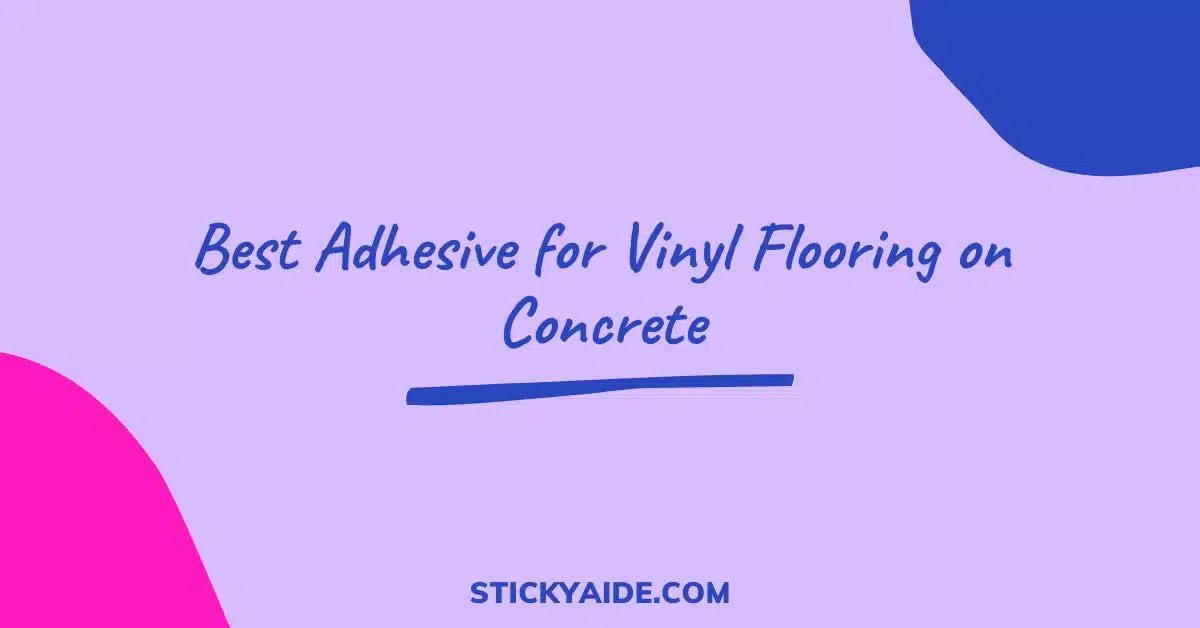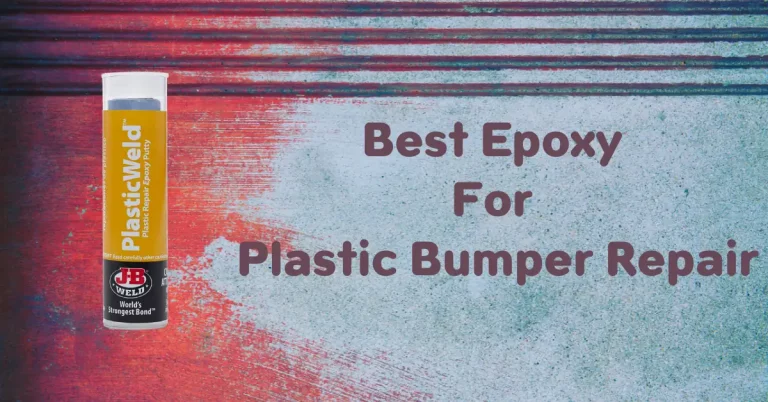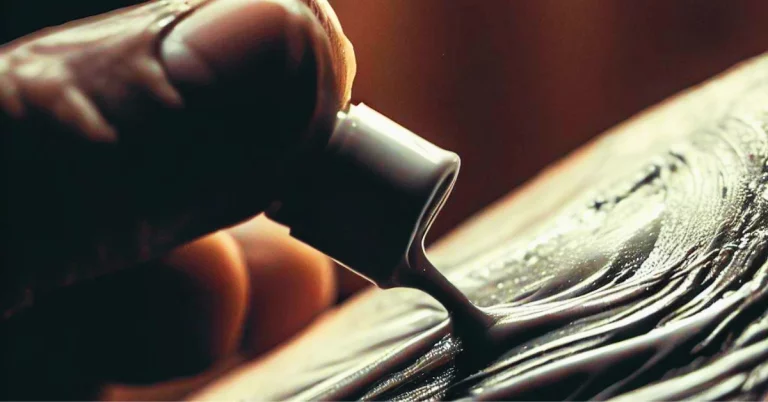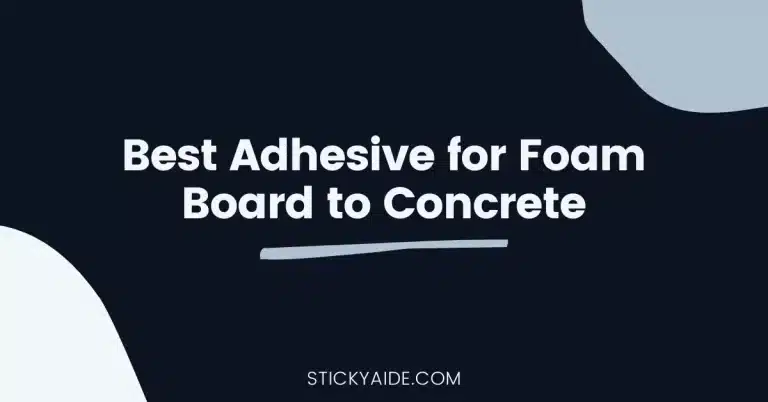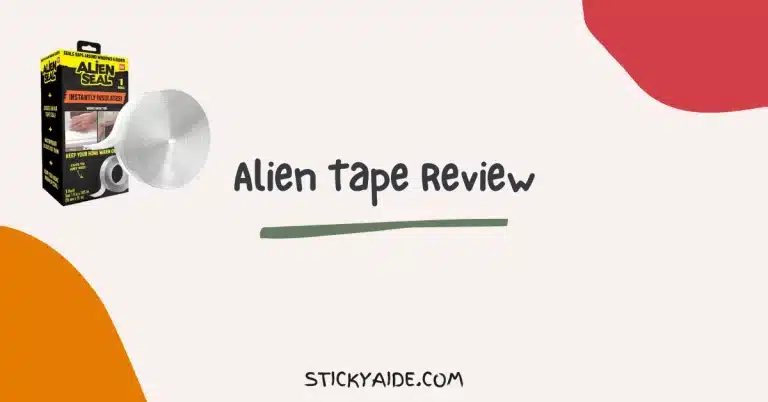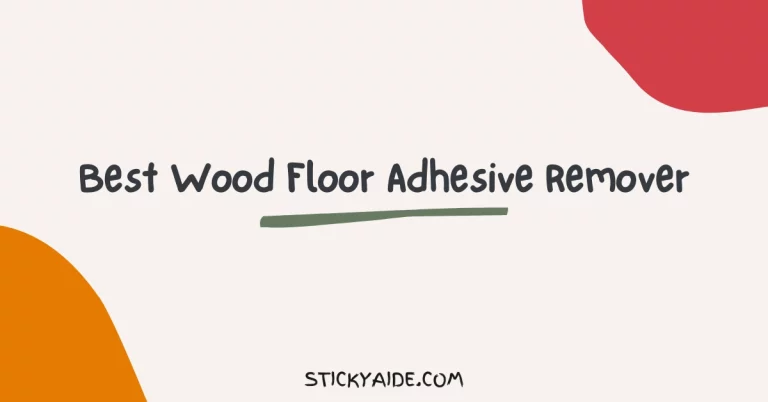Many homeowners and businesses choose vinyl floors due to their durability, affordability, and variety of styles.
However, installing vinyl flooring on concrete can be tricky, as you need to choose the right adhesive that will bond well with both the vinyl and the concrete.
In this article, I will review some of the best adhesives for vinyl flooring on concrete and provide some tips on how to use them.
Read More: Best Adhesive for Foam Board to Concrete
Best Adhesive for Vinyl Flooring on Concrete
Choosing the best adhesive for vinyl flooring on concrete can make a big difference in the appearance and performance of your floor.
There are two main types of adhesives available for the installation of Vinyl Flooring on Concrete: epoxy-based adhesive and acrylic-based adhesive.
Epoxy-Based Adhesive
The best adhesive for vinyl flooring on concrete is epoxy-based adhesive because of its unparalleled tenacity.
The epoxy glue is pretty effective for vinyl flooring, especially rigid vinyl planks. However, epoxy is not a good option when it comes to flexible vinyl.
Epoxy-based adhesive consists of two components: a resin and a hardener. When mixed together, they form a strong and durable bond that can withstand high pressure, impact, and abrasion.
Epoxy-based adhesive is also resistant to water, heat, and chemicals.
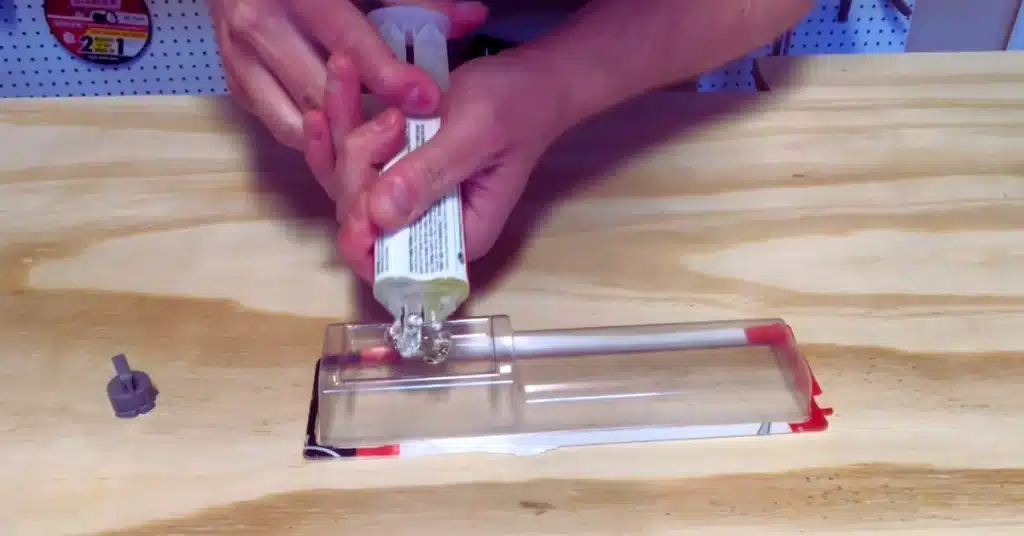
Acrylic-Based Adhesive
Acrylic-based adhesive is another good option for vinyl flooring on concrete.
Acrylic-based adhesive is heat-resistant, can handle fluctuations in temperature and does not loosen up due to moisture. It’s also easy to apply and clean up with water.
Acrylic-based adhesive comes in two forms: pressure-sensitive and full-spread.
Pressure-sensitive adhesive is suitable for luxury vinyl tiles (LVT) that have a peel-and-stick backing.
Full-spread adhesive is suitable for sheet vinyl or vinyl planks that require more coverage.
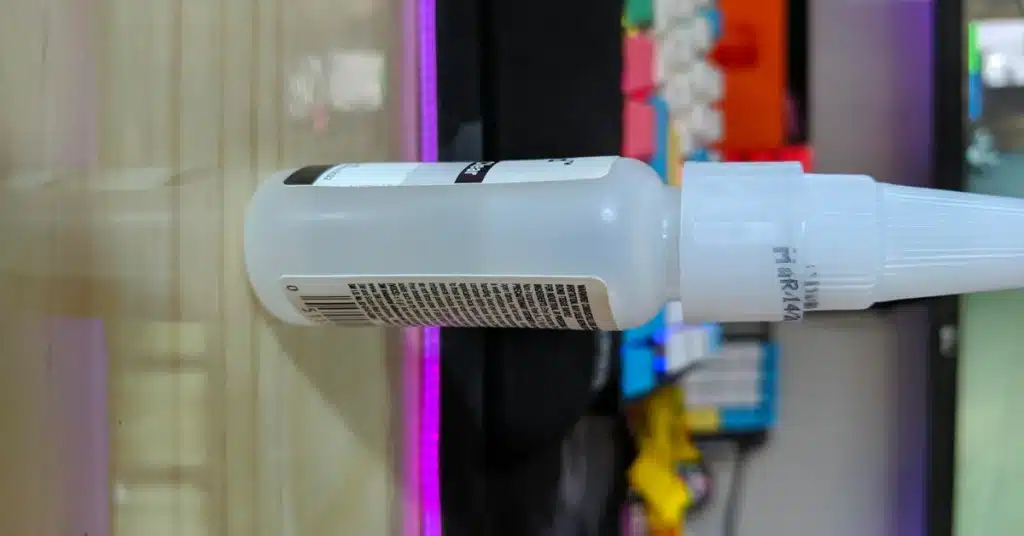
Other Types of Adhesives
Besides epoxy-based and acrylic-based adhesives, there are other types of adhesives that can be used for vinyl flooring on concrete.
However, they may have some limitations or disadvantages compared to the ones mentioned above.
Some of these adhesives are:
Rubber-based adhesive: This type of adhesive is flexible and resilient but may not bond well with concrete or vinyl. It may also emit strong odors or fumes that can be harmful to your health.
Polyurethane-based adhesive: This type of adhesive is strong and water-resistant but may be difficult to apply or remove. It may also cause discoloration or staining on vinyl flooring.
Latex-based adhesive: This type of adhesive is easy to apply and clean up but may not be durable or resistant enough to heavy traffic or moisture exposure.
Read More: Best Adhesive For Ceramic Tile On Concrete
How To Choose the Best Adhesive for Vinyl Flooring on Concrete?
For vinyl flooring on concrete, there are several types of adhesive available, but not all of them are suitable for all situations.
Some factors to consider when choosing the best adhesive are:
Type of Vinyl Flooring
Different types of vinyl flooring require different types of adhesives. For example, luxury vinyl tiles (LVT) require a pressure-sensitive adhesive, while sheet vinyl requires a full-spread adhesive.
Condition of the Concrete Surface
The concrete surface should be smooth, level, dry, and free of dust, oil, or grease. If the concrete is uneven, you may need a thicker adhesive to fill the gaps.
If the surface is not prepared properly, the adhesive may not bond well or may cause problems later on.
Moisture Content of the Concrete
Concrete surfaces can be prone to moisture, so it’s important to choose an adhesive that can handle this. Look for adhesives that have a moisture barrier or can tolerate high moisture levels.
VOC Contents
Some adhesives contain volatile organic compounds (VOCs), which can be harmful to your health and the environment.
Look for low-VOC or VOC-free adhesives that are safer and more eco-friendly.
The Brand Reputation
It is important to choose a brand with a good reputation for quality and reliability. You can also check the reviews and ratings of other customers who have used the same product.
How to Use Adhesive for Vinyl Flooring on Concrete?
Before applying any adhesive, make sure you have prepared the vinyl flooring and the concrete surface properly.
Here are some steps to follow:
- Measure and cut the vinyl flooring to fit the room. Leave some extra space around the edges for expansion and contraction.
- Clean the concrete surface thoroughly with a broom or a vacuum cleaner. Remove any dirt, dust, oil, or grease that may interfere with the adhesion.
- Using a moisture meter or calcium chloride test kit, determine the concrete’s moisture level. If the moisture level is too high, you may need to apply a moisture barrier or use a moisture-resistant adhesive.
- Make sure you follow the manufacturer’s instructions when mixing and applying the adhesive. The adhesive should be spread evenly over the concrete surface using a notched trowel or a roller.
- Do not apply too much or too little adhesive, as this may affect the bonding quality.
- Lay the vinyl flooring over the adhesive and press it firmly into place. Use a hand roller or a weighted roller to eliminate any air bubbles or wrinkles.
- Trim any excess vinyl flooring along the edges with a utility knife or a metal straightedge.
- Ensure that the adhesive has cured for at least 24 hours before walking on it or placing furniture on it.
Read More: How To Remove Construction Adhesive From Concrete?
Can You Glue Vinyl Flooring to Painted Concrete?
Yes, it is possible to glue vinyl flooring to painted concrete. However, you will need a construction adhesive suitable for both concrete and vinyl.
When the paint is intact, there is no moisture issue coming up from below, so the paint serves as a primer for the glue.
The vinyl tiles should work as long as the surface is smooth.
Can You Put Vinyl Sheet Flooring Directly on Concrete?
Yes, you can put vinyl sheet flooring directly on concrete. Make sure that the subfloor passes the moisture test before you begin.
The test should determine whether the concrete is dry enough to install vinyl sheet flooring; if the concrete is too moist, the vinyl sheets will not adhere to the floor.
Is Vinyl Flooring Good for Concrete Floors?
Yes, vinyl flooring is a good option for concrete floors. Vinyl flooring is easy to clean, durable, and comes in a variety of styles and colors.
Is Permanent Vinyl Waterproof?
Yes, permanent vinyl is waterproof. The permanent types of vinyl are waterproof and can last up to three years.
Last Opinion
Installing vinyl flooring on concrete can be a rewarding and cost-effective project if you use the right adhesive.
The best adhesive for vinyl flooring on concrete depends on the type of vinyl flooring you are using, the condition of the concrete surface, and your personal preferences.
The Epoxy-based adhesive is the strongest and most durable option but may not be suitable for flexible vinyl.
Acrylic-based adhesive is the most versatile and user-friendly option but may not be as resistant as epoxy.
Other types of adhesives may have some pros and cons that you need to weigh before choosing.

